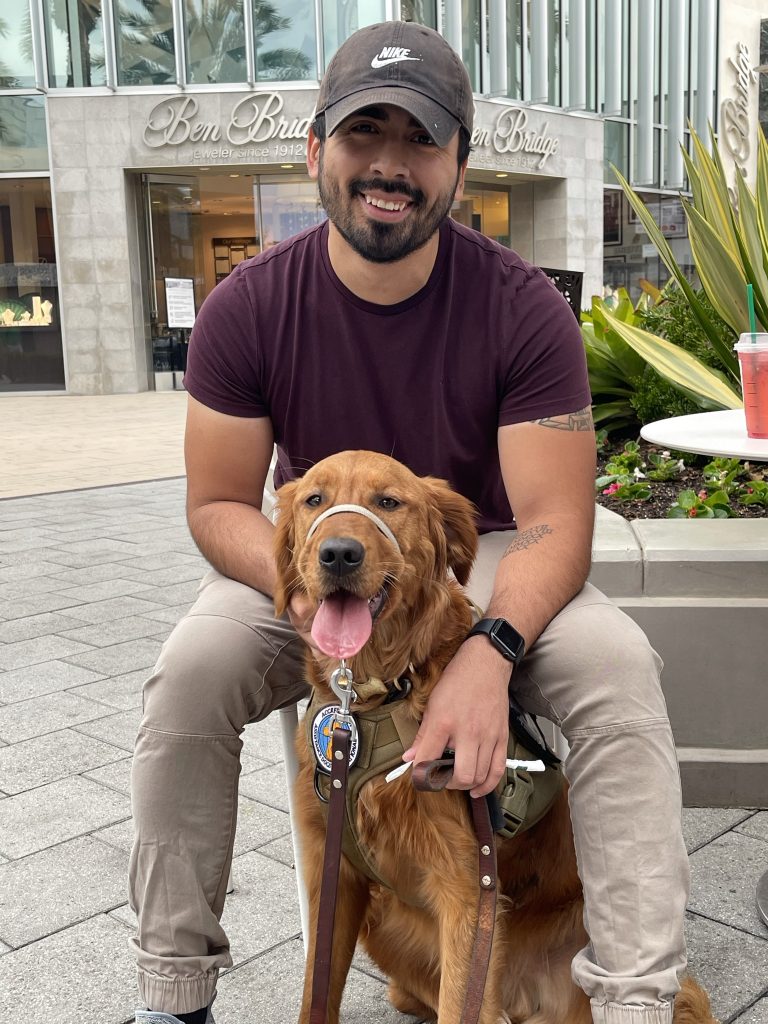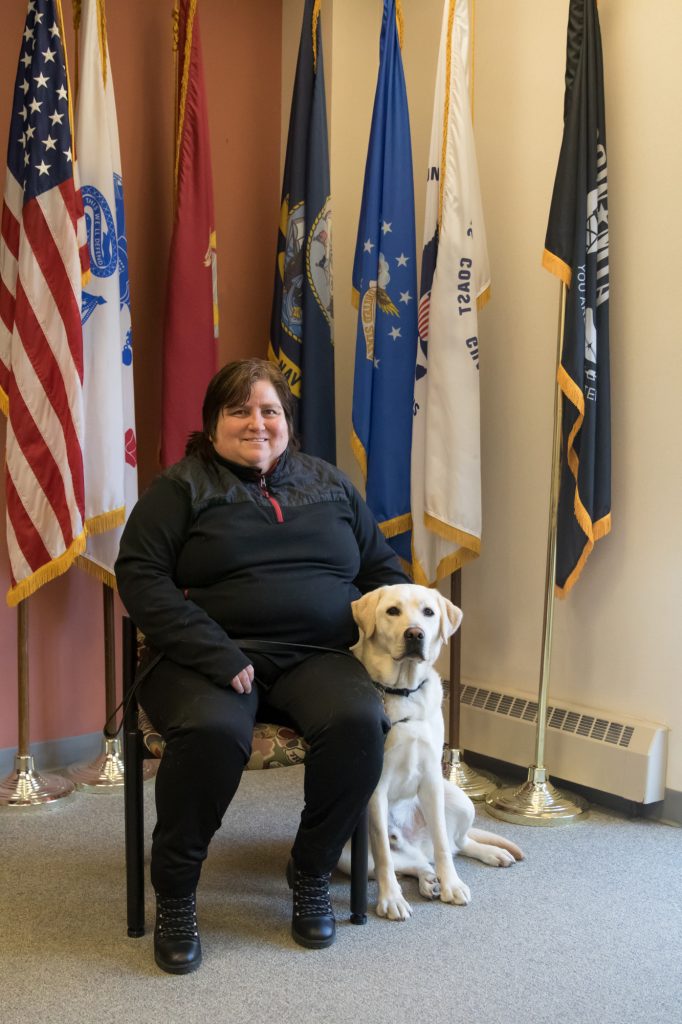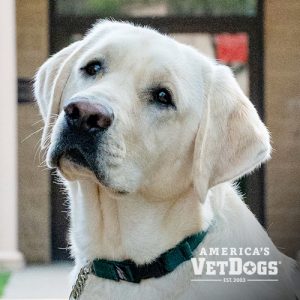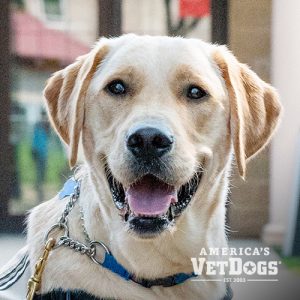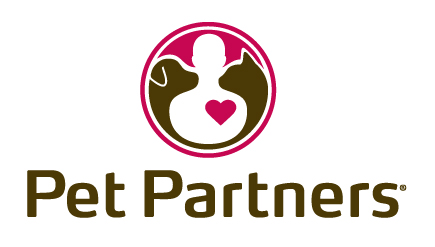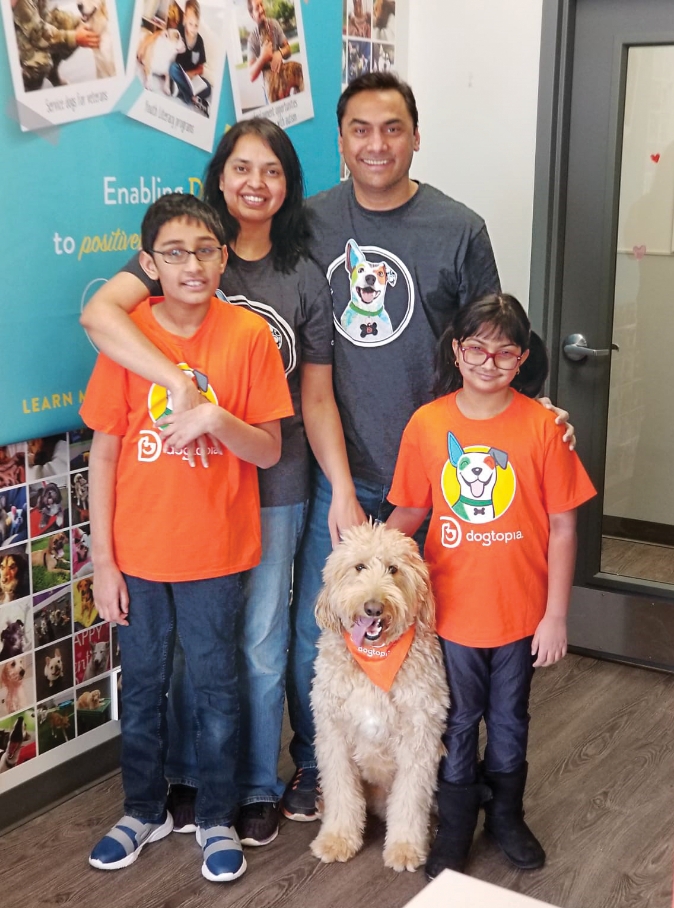Our Mission
Enabling dogs to positively change our world
To accomplish this, we currently are funding programs focused around three worthy causes: Service Dogs for Veterans, Therapy Dogs for Students, and Employment Initiatives for Adults with Autism. 100% of your donation is given directly to the organizations we support.
01
Service Dogs for Veterans
+
Our FUNDING SUPPORT
Sponsoring service dogs for military veterans
We currently fund nationally recognized organizations that provide highly trained service dogs for veterans returning home with physical and mental health challenges.
We are also committed to funding and promoting groundbreaking research that validates the benefits of dogs to humans—especially service dogs for veterans with PTSD.
featured partners
America’s VetDogs
Canine Companions
K9s For Warriors
Mutts with a Mission
Paws Assisting Veterans
paws4people

Why do our veterans need your support?
52%
SUFFER FROM PTSD
6 in 10
REPORT FEELING DEPRESSED, LONELY, OR ANXIOUS
$30K+
COST OF EACH SERVICE DOG
Success Stories

Changing the lives of veterans one service dog at a time
MEET OUR SPONSORED PUPS


We’re enabling dogs to positively change our world.
100% of your donation is given directly to the organizations we support.
02
Therapy Dogs for Students
+
Our Worthy Causes
Recruiting therapy dogs for students
Rates of anxiety and depression have increased significantly since the pandemic, especially among our nation’s youth. Because research is increasingly pointing to the physical, psychological, and emotional benefits of dog-assisted intervention, there is a surge in demand for registered therapy dog teams among schools and universities. Unfortunately, the pandemic also resulted in a loss of many registered therapy dog teams. We help meet this demand by proactively recruiting volunteers from among our pet parents and employees and encouraging them to become registered therapy dog teams through Pet Partners.

Are you and your animal ready to form a therapy team? Take this short, fun quiz to find out if you and your companion animal might be a good fit to join the Pet Partners family!


We’re enabling dogs to positively change our world.
100% of your donation is given directly to the organizations we support.
03
Employment Initiatives For Adults With Autism
+
Our Worthy Causes
Empowering employment initiatives for
adults with autism
We provide support for employment programs for adults with autism. Through quality employment programs, our aim is to help individuals with autism experience a higher quality of life and increased self-determination through their success at work.

In partnership with the Southwest Autism Research & Resource Center, the Dogtopia Foundation developed an Autism Employment Guide for Dogtopia franchisees. This guide provides coaching for Dogtopia teammates for how to best create a positive, thriving work environment for both adults with ASD and neurotypical adults.
featured partners
“Employing adults with autism has been a huge benefit for us. They bring so much to the table. They bring joy and they love what they do, but they also take their jobs very seriously. We have a lot of visual aids and technology in place to support them, but those additional supports have also benefitted our entire team.”
Diane Foos, Owner
Dogtopia of Rocklin

Why do adults with autism need our support with employment?
86%
of adults with autism are unemployed in their communities
1 in 59
current prevalence rate for Autism spectrum disorder (ASD)
50%
Of adults with aSD HAVE
NEVER HELD A PAYING JOB
SUCCESS STORIES

Chances are you know someone with autism spectrum disorder (ASD).
The Centers for Disease Control and Prevention states that the current prevalence rate for ASD is 1 in 59. Some people refer to ASD as an “invisible disorder” because unlike a physical disorder, the impact of one’s autism may not be as easily detectible to others. ASD is characterized by social impairments, communication difficulties, and restricted, repetitive, and stereotyped patterns of behavior. Autism is considered a spectrum disorder, meaning that each person has his or her own unique strengths and challenges within these areas.
People often think of ASD as only affecting children. However, autism is considered a lifetime disorder, and individuals can experiences challenges into adulthood. One of the biggest challenges is finding employment. Nationally, 86% of adults with autism are unemployed in their communities, according to the National Autism Indicators report published by Drexel University’s Autism Institute. This is a staggering statistic given the fact that many of these individuals have an average or above average IQ. Many experts in the field believe that the low employment rate is due to the challenges individuals with ASD experience in social communication. Oftentimes, individuals struggle with traditional screening and interview processes despite having the skillset to be successful on the job.


We’re enabling dogs to positively change our world.
100% of your donation is given directly to the organizations we support.



